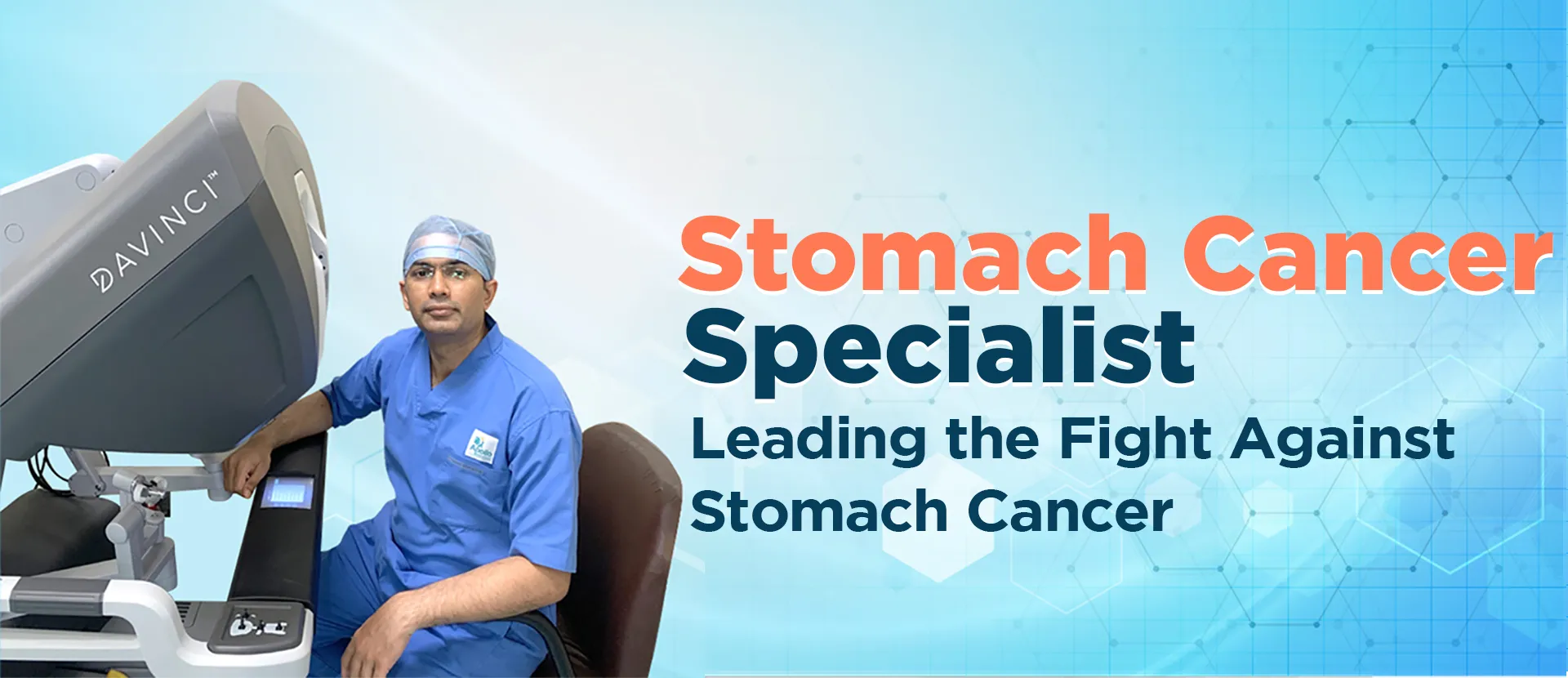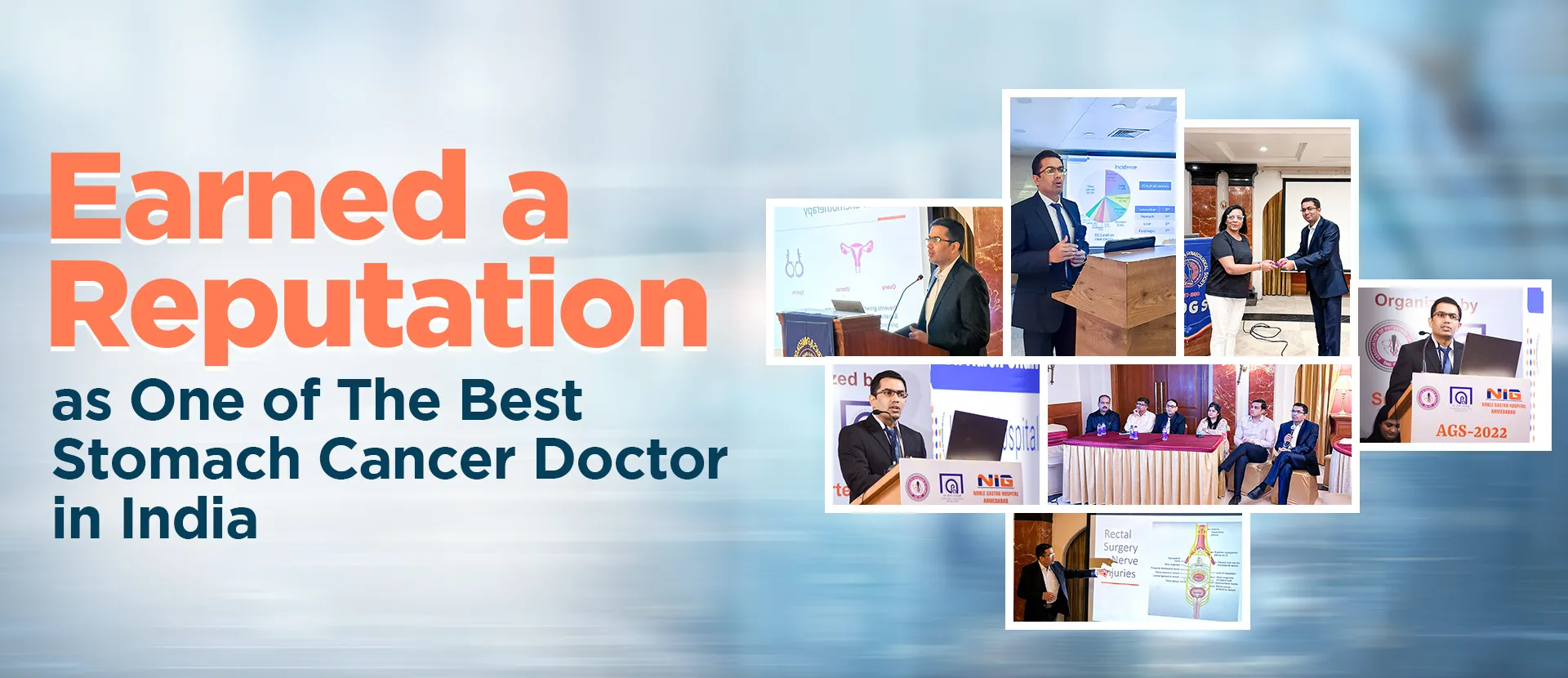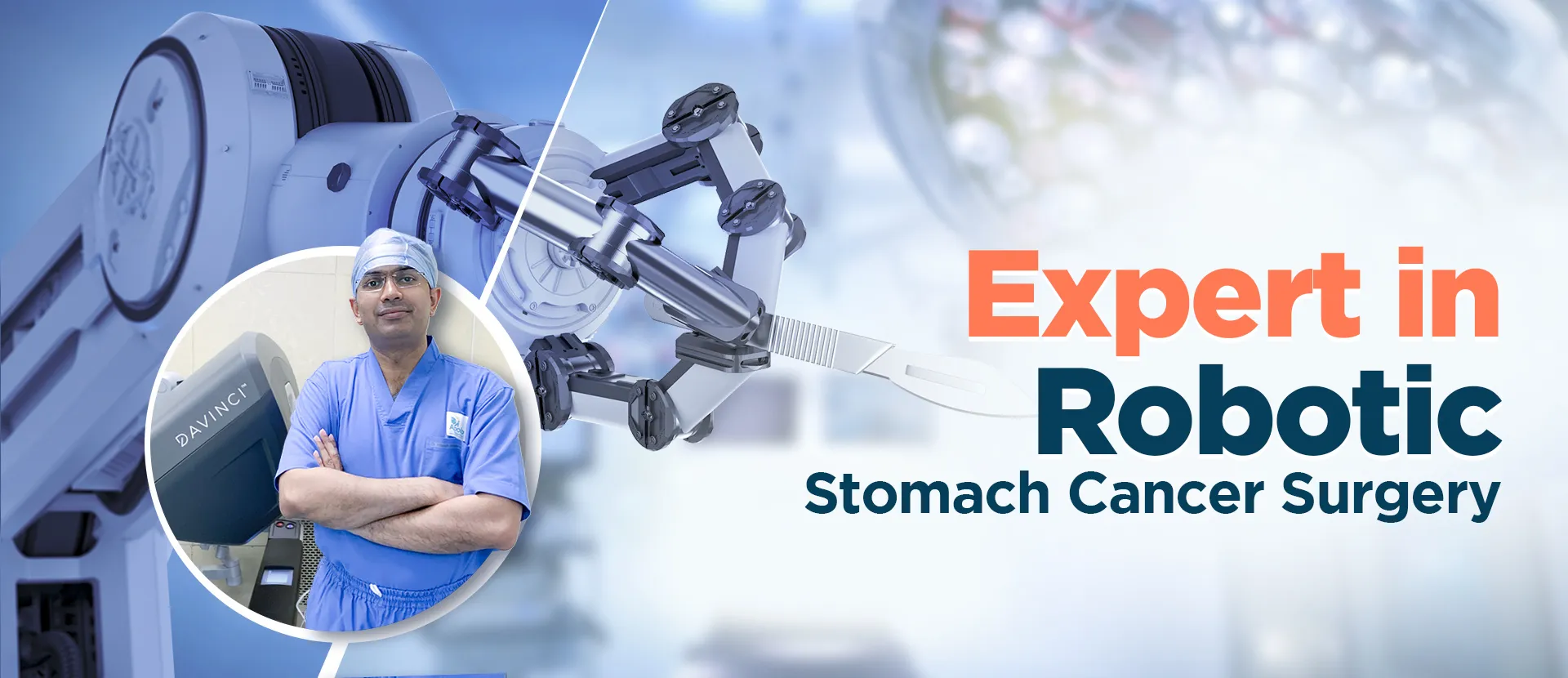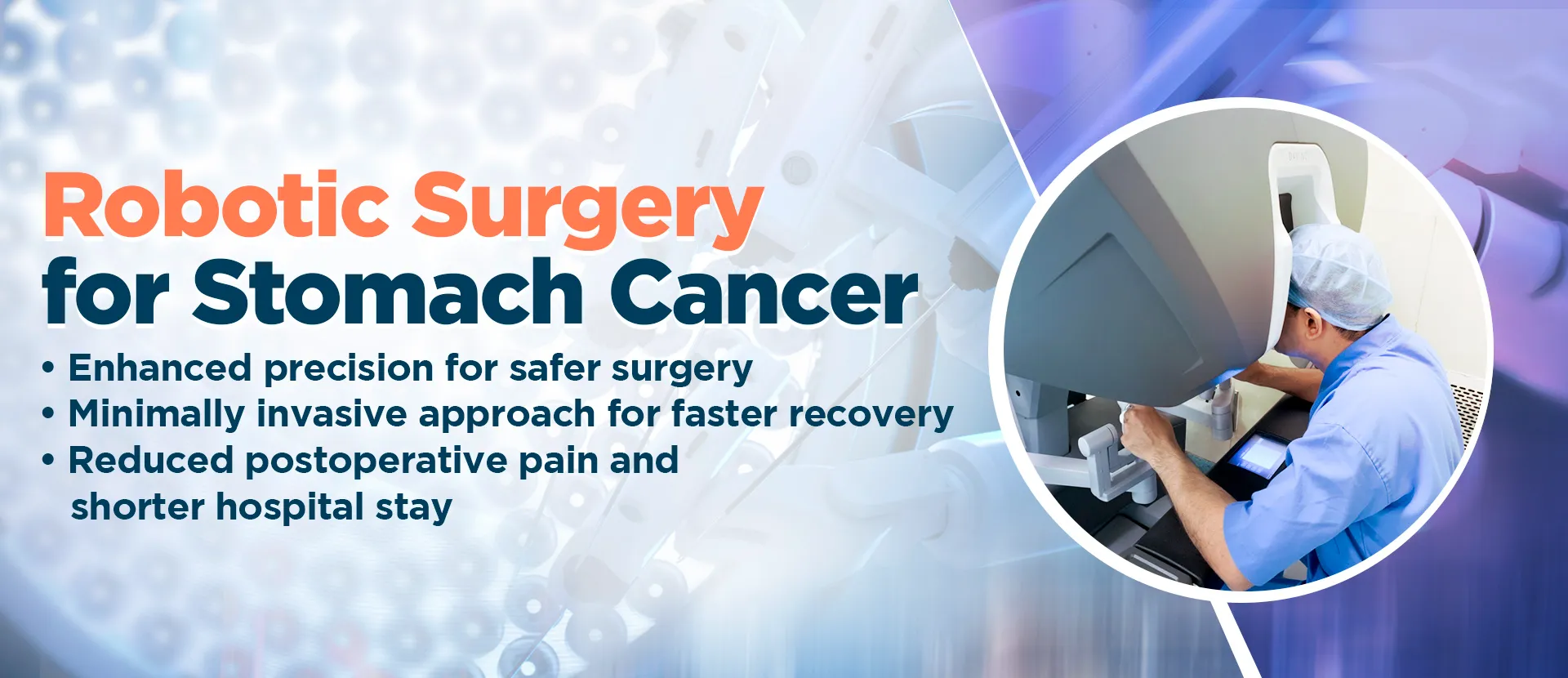
Understanding the Link Between Helicobacter pylori and Gastric Cancer
Understanding the Link Between Helicobacter pylori and Gastric Cancer






Maulana Azad Medical College, Delhi, GB Pant Hospital, Delhi

Holds the highest degrees in Oncology – DrNB, MCh

Having 15+ years of experience in treating



11750+ Patients have been successfully
treated

15+ years of work experience

22+ Awards received by Dr. Shah for his achievements
Stomach cancer, also known as gastric cancer, is a type of cancer that develops in the cells lining the stomach. It typically starts in the innermost layer and can spread to other parts of the stomach or nearby organs.
Stomach cancer can occur in different locations within the stomach:
– Cardia: The upper part of the stomach near the esophagus.
– Fundus: The upper portion of the stomach, above the cardia.
– Body: The central part of the stomach, between the fundus and the antrum.
– Antrum: The lower portion of the stomach, near the small intestine.
– Pylorus: The narrow passage that connects the stomach to the small intestine.
Symptoms of stomach cancer may include:
– Persistent indigestion or discomfort in the upper abdomen
– Feeling full after eating small amounts of food
– Nausea and vomiting, particularly after meals
– Unintentional weight loss
– Abdominal pain or swelling
– Blood in the stool or black, tarry stools
– Fatigue and weakness
– Loss of appetite
– Difficulty swallowing
– Frequent heartburn or acid reflux
Stomach cancer is staged based on the extent of the disease:
Stage 0: Cancer is confined to the inner layer of the stomach lining.
Stage I: Cancer has spread deeper into the stomach wall or nearby lymph nodes.
Stage II: Cancer has spread further into surrounding tissues or more lymph nodes.
Stage III: Cancer has invaded nearby organs or a large number of lymph nodes.
Stage IV: Cancer has spread to distant organs or distant lymph nodes.
Staging for stomach cancer are as follows:

Endoscopy with biopsy is a diagnostic procedure used to detect stomach cancer. It involves inserting a flexible tube with a camera (endoscope) into the stomach to examine the lining and take tissue samples (biopsies) for analysis. This procedure helps identify abnormal areas, such as tumors or ulcers, and determine if they are cancerous. Biopsy samples are sent to a laboratory for evaluation under a microscope to confirm the presence of cancer cells. Endoscopy with biopsy is a key tool in the early detection and diagnosis of stomach cancer, enabling prompt treatment and improved outcomes.
Treatment options for stomach cancer:
Surgery involves removing the tumor and nearby lymph nodes to eliminate cancer cells.
Chemotherapy uses drugs to kill cancer cells and may be administered before or after surgery.
Radiation therapy delivers targeted radiation to destroy cancer cells.
People trust Dr. Harsh Shah with their health when it comes to dealing with stomach cancer – His results speak for themselves!
People trust Dr. Harsh Shah with their health when it comes to dealing with stomach cancer – His results speak for themselves!
Dr. Harsh Shah is a great doctor! He’s very understanding and listens to your concerns. My friend had stomach cancewr. Robotic Gastrectomy was done and she recovered fast. We are all greatful to Dr Harsh and the staff here. I believe he is the best gastrointestinal and pancreatic Oncosurgeon in Ahmedabad

I found Dr. Harsh Shah the best cancer surgeon in Ahmedabad . After reviewing patients reports and check up he explained treatment route which was very satisfactory in comparison to other doctors we met. Before operation and after operation every thing was explained properly in consulting room. That gave great satisfaction. Kaizen Hospital is meeting ISO standards. Staff is also efficient and cooperative.

My patient underwent a cancer operation. We were very apprehensive at first. But now after 15 days of treatment we are very happy. He is one of the best Gastro Oncosurgeon in Ahmedabad.




Tap Below to Listen

Tap Below to Listen


The operation theatre is equipped with latest robotic system, HD laparoscopy system, Laser system, Laminar flow – Hepafilter & many more such technologies.
The Hospital also has 50+ bedded ICU with the latest support systems such as ventilators, dialysis machines & a team of best critical care doctors.
Radilogy department is fully equipped with latest CT Scan & MRI machines. The hospital also has an interventional radiology suit.

Explore with caution. Please be advised that viewer discretion is recommended.





Understanding the Link Between Helicobacter pylori and Gastric Cancer

A New Hope for Gastric Cancer Patients: Innovative Chemotherapy Technique Shows Promise

ICG-Guided Surgery Enhances Lymph Node Removal in Gastric Cancer
WhatsApp us